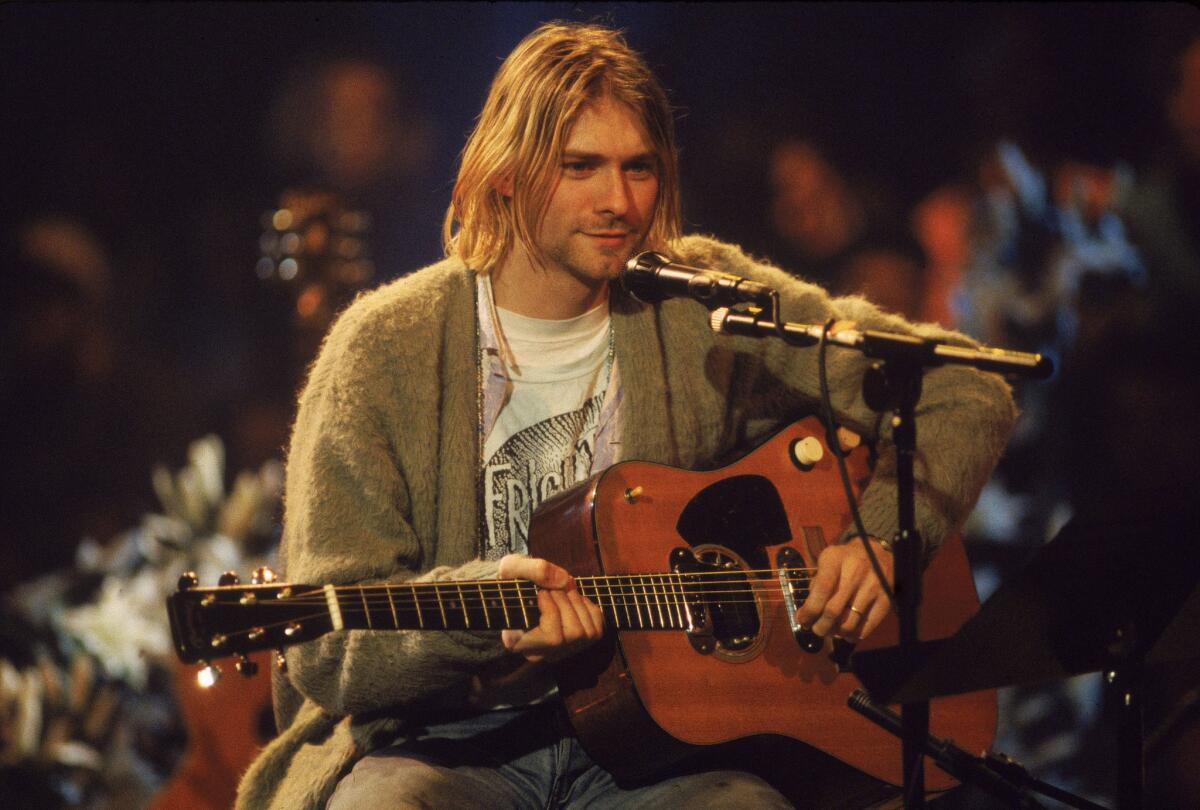Kurt Cobain
Kurt Cobain

Kurt Donald Cobain (February 20, 1967 – c. April 5, 1994) was an American musician who served as the lead vocalist, guitarist, primary songwriter, and a founding member of the rock band Nirvana. Known for his angst-fueled songwriting and anti-establishment persona, Cobain's compositions expanded the thematic conventions of mainstream rock music. He was acclaimed as a spokesman of Generation X and is widely acknowledged as one of the most influential alternative rock musicians.
Kurt Donald Cobain played a pivotal role in the formation of Nirvana alongside Krist Novoselic and Aaron Burckhard in 1987. The band became integral to the Seattle music scene, later recognized as grunge. After the release of their debut album "Bleach" (1989) on Sub Pop, Chad Channing replaced Burckhard, and later Dave Grohl succeeded Channing. With this final lineup, Nirvana achieved commercial success with the iconic single "Smells Like Teen Spirit" from their acclaimed second album "Nevermind" (1991). Cobain penned numerous other hits for Nirvana, including "About a Girl," "All Apologies," "Aneurysm," "Come as You Are," "Heart-Shaped Box," "In Bloom," "Lithium," "Something in the Way," and "You Know You're Right."
Despite being hailed as the voice of his generation following Nirvana's rapid rise to fame, Cobain felt uneasy with this role. In his final years, he grappled with a heroin addiction and chronic depression. He also faced the challenges of fame, both personally and professionally, including the spotlight on his tumultuous marriage to fellow musician Courtney Love and their daughter Frances. In March 1994, Cobain overdosed on a mix of champagne and Rohypnol, leading to an intervention and detox program. On April 8, 1994, he was discovered dead in the garage of his Seattle home at the age of 27, with authorities determining that he had died approximately three days earlier from a self-inflicted shotgun wound to the head.
Cobain was posthumously inducted into the Rock and Roll Hall of Fame in 2014, alongside Nirvana bandmates Novoselic and Grohl. Rolling Stone recognized him on various lists, including the 100 Greatest Songwriters of All Time, 100 Greatest Guitarists, and 100 Greatest Singers of All Time. MTV ranked him 7th in the "22 Greatest Voices in Music," and Hit Parader placed him 20th on their 2006 list of the "100 Greatest Metal Singers of All Time."
Kurt Donald Cobain was born on February 20, 1967, at Grays Harbor Hospital in Aberdeen, Washington. He was the son of Wendy Elizabeth (née Fradenburg), a waitress, and Donald Leland Cobain, a car mechanic, who had married on July 31, 1965, in Coeur d'Alene, Idaho. Cobain had a diverse ancestry, including Dutch, English, French, German, Irish, and Scottish roots. The Cobain surname originated from his Irish ancestors who immigrated from Carrickmore, Northern Ireland, in 1875. Initially known as Cobane, they were shoemakers and settled in Canada before moving to Washington. Despite Kurt's belief that his Irish ancestors came from County Cork, researchers traced their roots to County Tyrone. His younger sister, Kimberly, was born on April 24, 1970.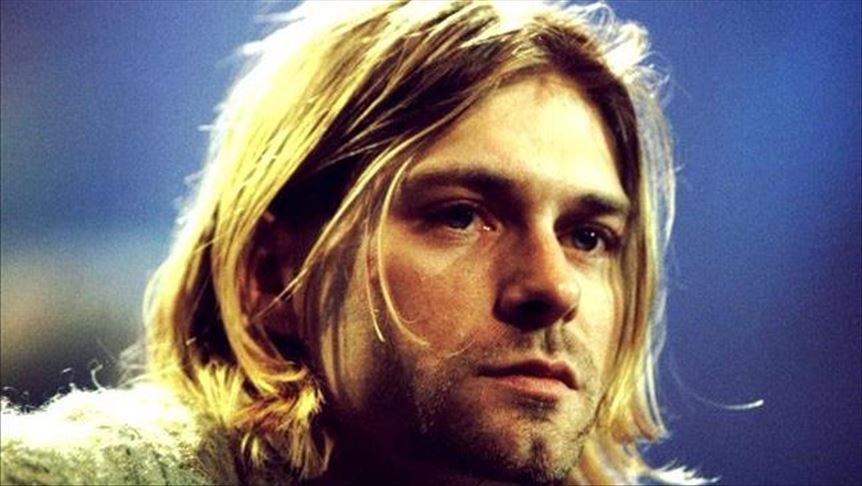
Cobain's family had a strong musical background. His maternal uncle, Chuck Fradenburg, played in a band called the Beachcombers, and his aunt, Mari Earle, played guitar in various bands in Grays Harbor County. His great-uncle, Delbert, was an Irish tenor who appeared in the 1930 film "King of Jazz." Described as a happy and excitable child, Cobain displayed sensitivity and care. He showed artistic talent from an early age, drawing favorite characters in his bedroom. Encouraged by his grandmother, Iris Cobain, a professional artist, Kurt developed a keen interest in music. His aunt Mari mentioned that he started singing at two and began playing the piano at four. Cobain would sing songs by artists like Electric Light Orchestra (ELO) and perform tunes such as Arlo Guthrie's "Motorcycle Song," the Beatles' "Hey Jude," Terry Jacks' "Seasons in the Sun," and the theme song to the Monkees television show from a young age.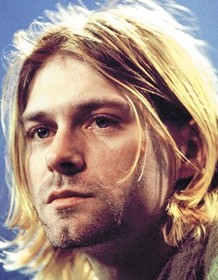
At the age of nine, Kurt Cobain's parents divorced, a significant event that deeply impacted his life. Cobain later reflected on how the divorce had a profound effect, leading to changes in his personality. The divorce made him defiant and withdrawn, and in a 1993 interview, he expressed feeling "ashamed" of his parents as a child. He desperately yearned for a "typical family" and resented his parents for not providing the security he sought.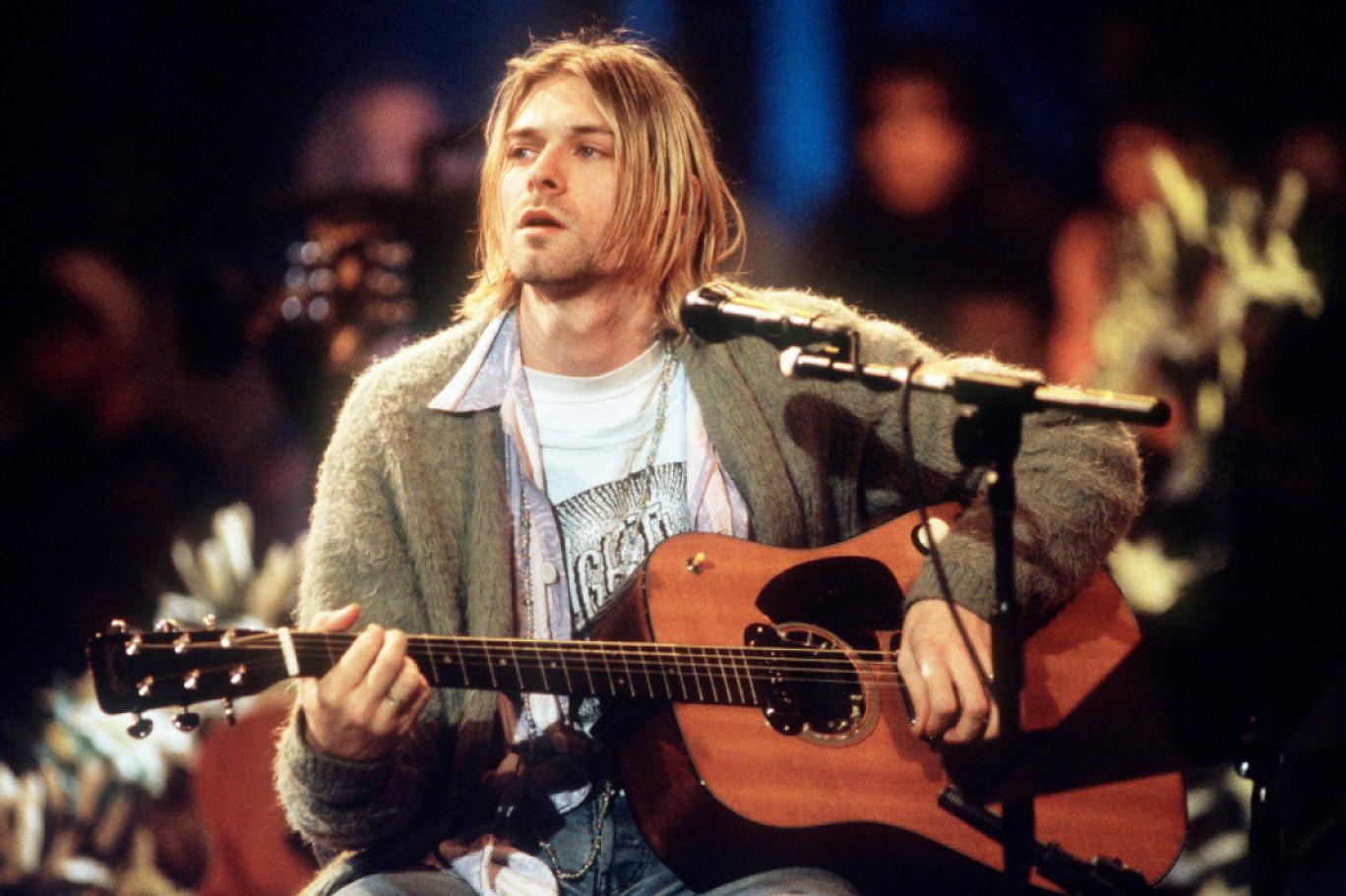
Following the divorce, both of Cobain's parents entered into new relationships. Despite his father's initial promise not to remarry, he eventually married Jenny Westeby, a development that upset Kurt. The newly formed household included Cobain, his father, Westeby, and her two children, Mindy and James. Initially, Cobain liked Westeby as she provided the maternal attention he desired. However, when Westeby gave birth to a son, Chad Cobain, in January 1979, Kurt began to feel resentful. He insisted that this new family was not his "real" one and struggled with the changes. The dynamics were starkly different from the attention Cobain was accustomed to as an only child, and he grew increasingly resentful of his stepmother.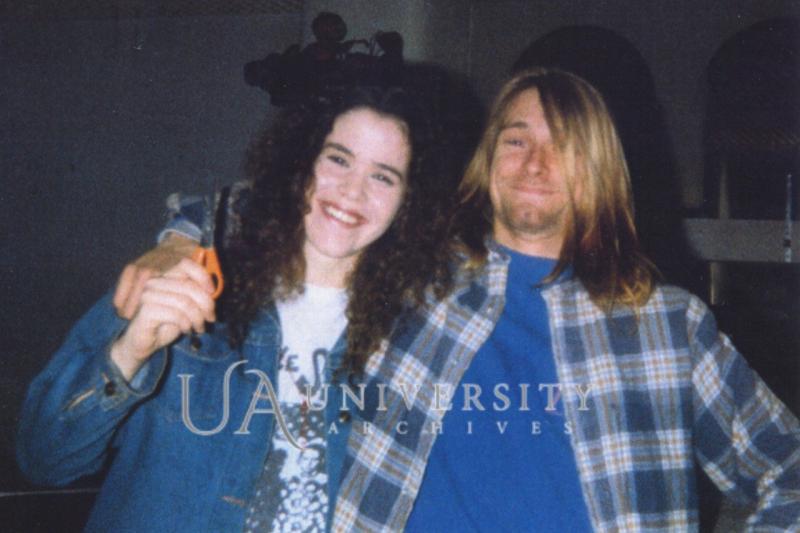
In addition to the challenges at his father's home, Cobain's mother, Wendy, faced difficulties in her relationships. She dated a man who was abusive, and Cobain witnessed incidents of domestic violence against her. In one particularly severe incident, Wendy was hospitalized with a broken arm. Despite the violence, Wendy chose not to press charges and remained committed to the relationship, further contributing to the complexities of Cobain's family life during this period.
During this turbulent period, Kurt Cobain exhibited insolent behavior towards adults and engaged in bullying at school, particularly targeting another boy. Concerned about his well-being, Cobain's father and stepmother took him to a therapist, who recommended a single-family environment for his benefit. Despite attempts by both sides of the family to reconcile, Cobain's mother eventually granted full custody to his father on June 28, 1979.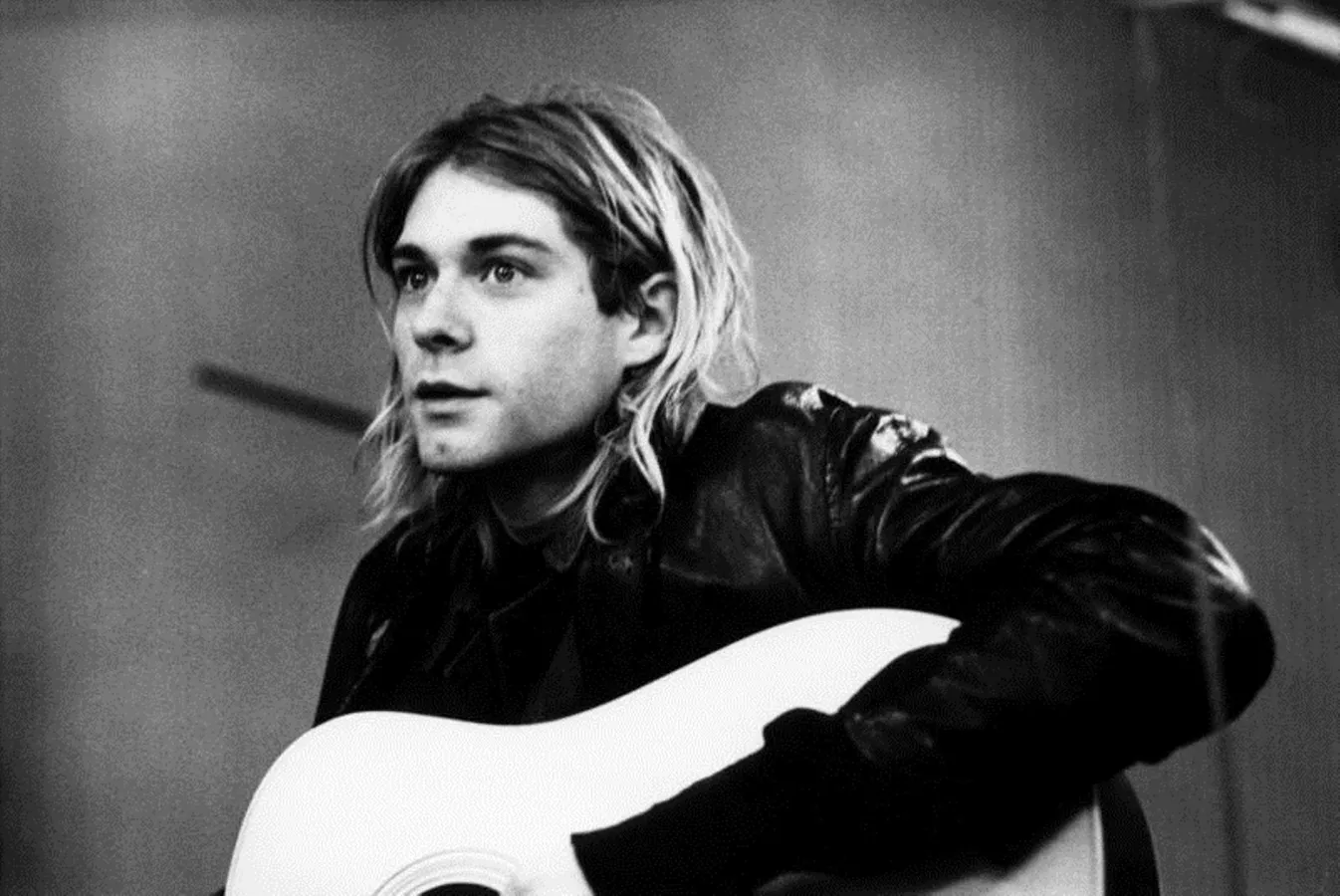
In an effort to address Cobain's rebellious behavior, his father placed him in the care of various family and friends. During this time, while living with the born-again Christian family of his friend Jesse Reed, Cobain embraced Christianity and regularly attended church services. However, he later renounced Christianity and expressed "anti-God" sentiments. The song "Lithium" is said to be inspired by Cobain's experiences while living with the Reed family, highlighting the complexities of his relationship with religion.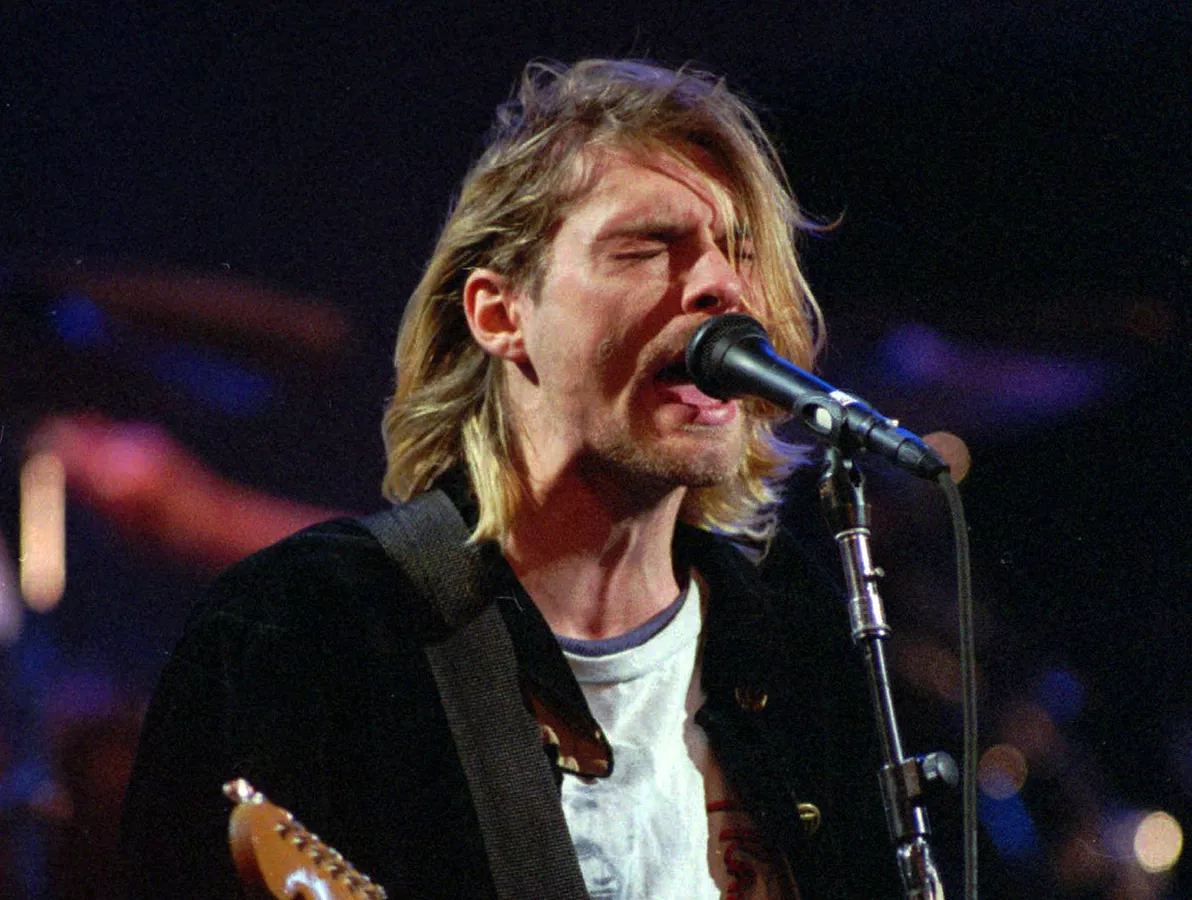
Despite his disinterest in sports, Cobain found himself enrolled in a junior high school wrestling team at his father's insistence. Although he was a skilled wrestler, Cobain despised the experience and intentionally allowed himself to be pinned as an act of rebellion against his father. Later, he was enlisted in a Little League Baseball team, where he deliberately struck out to avoid playing, further illustrating his resistance to conforming to societal expectations.:max_bytes(150000):strip_icc():focal(899x58:901x60):format(webp)/kurt-cobain-10-b0379fed591c4be98a11e38e3681d53b.jpg)
Cobain also faced challenges in his social life, befriending a gay student at school and becoming the target of bullying by peers who falsely believed he was gay. In an interview, Cobain revealed that he liked being associated with a gay identity because it kept people at a distance. Despite clarifying his sexual orientation to his friend, Cobain remained supportive and continued the friendship. He even admitted to spray painting "God Is Gay" on pickup trucks in the Aberdeen area as a form of expression. Police records indicate that Cobain was arrested for spray painting the phrase "ain't got no how watchamacallit" on vehicles during this time.:max_bytes(150000):strip_icc():focal(641x119:643x121):format(webp)/kurt-cobain-5-b4b13c2fdf6a4085a0a069b9d8e8e473.jpg)
Kurt Cobain often expressed his creative inclinations during classes by drawing. Notably, when assigned a caricature project for an art course, he drew Michael Jackson, but the teacher deemed the image inappropriate for display in a school hallway. Undeterred, Cobain then created an "unflattering" caricature of then-President Ronald Reagan.:max_bytes(150000):strip_icc():focal(899x43:901x45):format(webp)/kurt-cobain-9-61ea3fcd0cd4439e9f819877488c8048.jpg)
Cobain's introduction to the punk rock and hardcore music scenes occurred through his participation in art and electronics classes. It was in these classes that he met Roger "Buzz" Osborne, the singer and guitarist of the Melvins, who would become a significant influence and friend. Osborne played a crucial role in introducing Cobain to the world of punk rock.:max_bytes(150000):strip_icc():focal(644x29:646x31):format(webp)/kurt-cobain-3-56ce540dd0aa4d1d86f77a58d5074662.jpg)
While there are conflicting accounts regarding the first concert Cobain attended, he mentioned in his journals and interviews that he claimed the Melvins' concert was the first live show he experienced. He specifically highlighted the impact of this experience on his musical perspective. Despite some discrepancies about his first concert, it is widely acknowledged that Cobain was deeply influenced by the thriving Pacific Northwest punk scene. As a teenager living in Montesano, Washington, he regularly attended punk rock shows in Seattle, marking the beginning of his immersion into the punk subculture.:max_bytes(150000):strip_icc():focal(621x19:623x21):format(webp)/kurt-cobain-7-3dd5cfc1282d4c558a0f2a8d7467400a.jpg)
References
- Shoup, Brad (March 24, 2022). "'I Will Crawl Away For Good': 20 Years Ago, Nirvana Reconquered Modern Rock With an Uncanny Old New Song". Billboard. Retrieved March 25, 2022.
- ^ Petridis, Alexis (June 20, 2019). "Nirvana's 20 greatest songs – ranked!". The Guardian. ISSN 0261-3077. Archived from the original on June 5, 2020. Retrieved June 9, 2020.
- ^ Hilburn, Robert (April 5, 2019). "From the Archives: Nirvana's Kurt Cobain was a reluctant hero who spoke to his generation". The Los Angeles Times. Retrieved January 9, 2024.
- ^ Mazullo, Mark (2000). "The Man Whom the World Sold: Kurt Cobain, Rock's Progressive Aesthetic, and the Challenges of Authenticity". The Musical Quarterly. Oxford University Press. 84 (4): 713–749. doi:10.1093/mq/84.4.713. JSTOR 742606.
- ^ Hirschberg, Lynn. "Strange Love: The Story of Kurt Cobain and Courtney Love". HWD. Archived from the original on December 15, 2016. Retrieved August 23, 2018.
- ^ "The27s.com roster". January 20, 2018. Archived from the original on January 20, 2018.
- a b "100 Greatest Singers of All Time: 45) Kurt Cobain". Rolling Stone. Archived from the original on September 26, 2017. Retrieved April 8, 2012.

